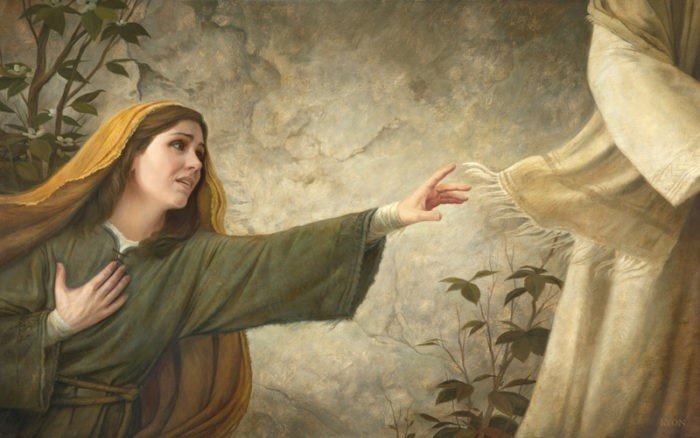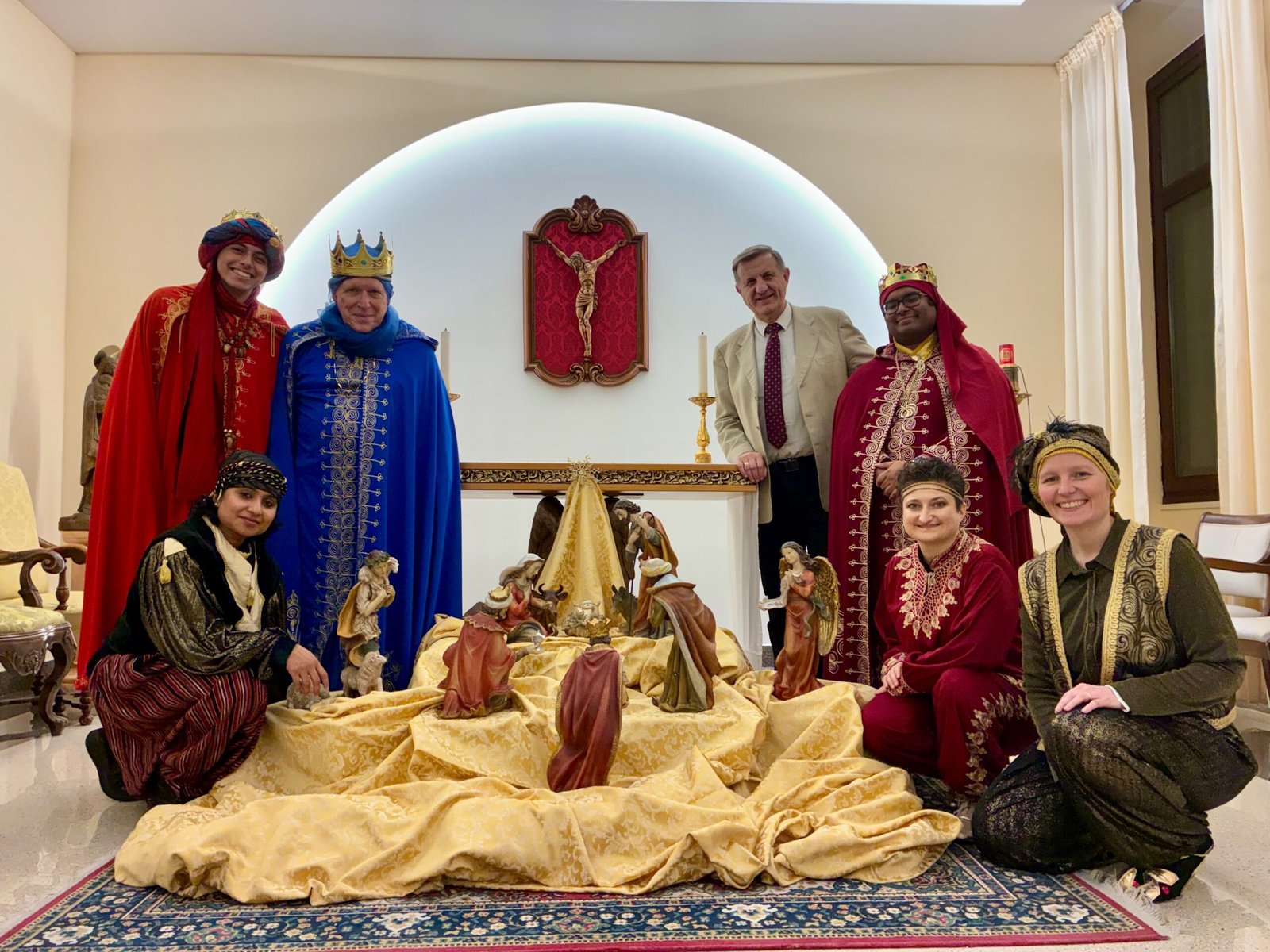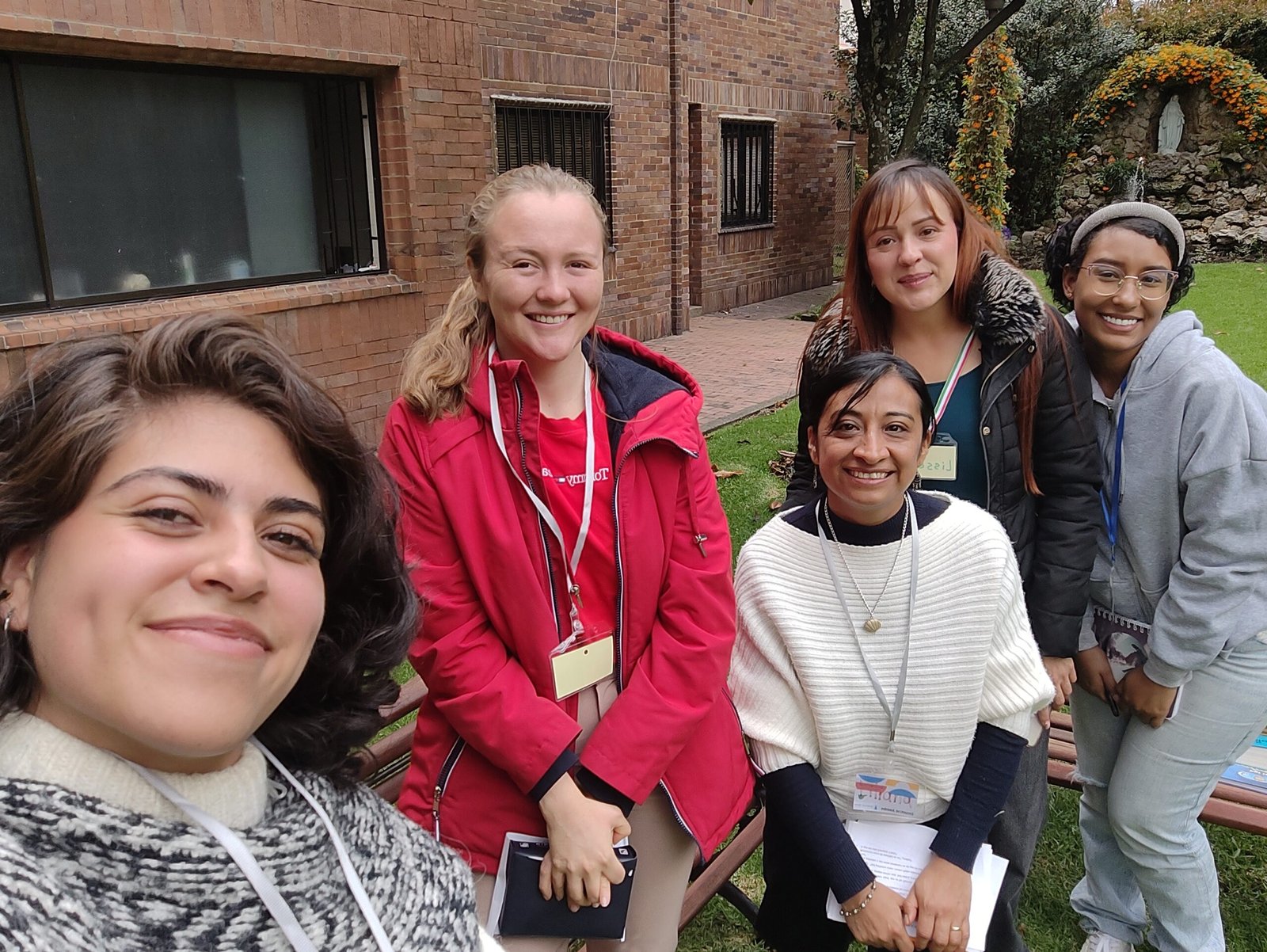
by f. Luis CASASUS, General Superior of the men’s branch of the Idente missionaries.
Zaragoza, June 27, 2021. | XIII Sunday in Ordinary Time
Book of Wisdom 1:13-15.2,23-24; 2 Corinthians 8: 7.9.13-15; Saint Mark 5 :21-43.
In today’s Gospel text, two people, Jairus and the hemorrhagic woman, teach us how to behave in moments of maximum tragedy in our lives. Last Sunday’s Gospel evoked the threatening storm, but now it is different, it is about two situations where pain and adversity have invaded our existence. The twelve-year suffering of the woman with the hemorrhage due to her menstrual discharge and the imminent death of Jairus’ daughter are more than a threat.
It is clear that both cases represent two forms of death. We all have similar experiences. When we suffer an illness that will not allow us to live as before, when a loved one leaves this world, when a person we love betrays us, or when we have committed a serious moral fault, perhaps with painful consequences for others, it is something more than a threat. We feel that something has dead in us. This is the meaning of “death” that is important for us to understand.
The First Reading tells us categorically that death was contrary to the designs of God the Creator, and entered the world as a consequence of sin. It is, as St. Paul says, “the last enemy” of man, who must be defeated..
Biological death has always existed: the human body, over the years, weakens, wears out, and ends its cycle. This is not the death that instilled fear to the pious Jew of Jesus’ time. The just knew he was destined to live; his death, in the Book of Wisdom, is called a definite start, or exodus from slavery to freedom, for this it was not feared. The transition to a better life could not be considered a punishment.
Which death was then introduced by sin? The verse which precedes this passage helps us understand: Do not bring about your own death by your wrong way of living. And do not let the work of your hands destroy you (Wisdom 1:12).
Here is what causes death: sin. Who feeds on hatred, takes revenge, is violent. Who leads an immoral life, even if he enjoys excellent health, has destroyed the best part of himself.
Today’s First Reading concludes: The devil brought death to the world and those who take his side shall experience death. It does not speak about biological death. This is an event, not an absolute evil. Man really dies only when he ceases to love, when he withdraws to himself and becomes selfish, when he moves away from God and his wisdom, which is “a life-giving fountain” (Prv 13:14).
The devil is the one who introduces us into this state of death. It is the evil force, present in each person and that it distances us from the Lord.
In the same vein, Moses says to the people: See, I have set before you on this day life and good, evil and death; I command you to love the Lord your God, and follow his ways. I have set before you life and death, blessing and curse; choose life, that you and your descendants may live (Dt 30:15-20).
What attitudes can separate us from Christ when tragedy of any kind strikes our lives?
The first is a discouragement caused by fatigue, by relying on our energy and goodwill, which are limited. This is the situation described in today’s Second Reading.
During the reign of Claudius (41-54 AD) famines in the provinces of the Roman Empire were recorded. Palestine, an already very poor region, was not spared and several times the Christian communities were in emergency situations.
In Jerusalem, Paul solemnly committed himself to helping the poor of his people, reminding the Christians of the churches he founded in pagan territory of the obligation to solidarity (Gal 2:10). He decided to take up a collection upon the advice of the Christian community at Corinth.
As it often happens with good initiatives, a cooling of enthusiasm soon follows the initial good intentions. Apathy and lack of interest enter and the project is delayed first, then stops altogether. This was what happened in Corinth.
Writing to the Christians of that community, Paul recalls, first of all, the commitment they had undertaken, and to stimulate them, he cites the generosity shown by the Thessalonians and Philippians: According to their means—even beyond their means—they wanted to share in helping the saints. They asked us for this favor spontaneously and with much insistence, and, far beyond anything we expected, they put themselves at the disposal of the Lord, and of us by the will of God (2 Cor 8:3-5).
The second attitude is more elaborate, it is a position of cynicism.
Today, cynicism refers to doubt or disbelief in the professed motives, sincerity, and goodness of others, and, by extension, in social and ethical norms and values. This attitude is often accompanied by mistrust, scorn, and pessimism about others and humanity as a whole.
In Voltaire’s satirical novel Candide, the naïve Candide befriends a cynical scholar named Martin:
– You’re a bitter man, said Candide.
– That’s because I’ve lived, said Martin.
The term cynicism is appropriate, because it comes from a Greek school of thought, represented especially by Diogenes. (c 412- 323 BC). It is a structured systematization of the lack of faith, which sometimes -not always- leads to irony and sarcasm. In the spiritual life the problem is that, since it is a defense of our ego, to place ourselves above others, cynicism, like all our psychological mechanisms, is invariably used by the devil to separate us more and more from God and from our neighbor.
In today’s Gospel, the cynical attitude is represented by some people arrived from the house of the synagogue official to say, ‘your daughter is dead: why put the master to any further trouble?
This cynical attitude is not only of a few. Surely, St. Mark is careful to point out that the woman had been sick for twelve years and that Jairus’ daughter was twelve years old, thus representing the twelve tribes of Israel and, by extension, all of us sinners chosen by God.
Both miracles show us that discouragement and cynicism can only be overcome by faith. And this is expressly stated by Jesus. Faith, in simple terms, means approaching the person of Jesus, even if it is not entirely appropriate, like the sick woman, or with the sacrifice of our fame, as happened to Jairus, who, as an official of the synagogue, knew very well that Jesus was a very different Master from those considered orthodox.
Invariably, faith demands a choice. And choice produces fear. That is what happened to the woman and to Jairus, who had to choose between the behavior that the Law imposed on them (respect, distance, prudence…) and approaching the person of Christ.
The woman exhibits fear when Jesus stops the crowd and looks for her who had touched him. Not letting Jairus say one word when he hears his daughter is dead, Jesus commands him not to fear. Earlier in Mark, the Gerasenes townsfolk express fear when the deranged demoniac becomes a normal, clothed person. The disciples express fear after the wind and waves obey Jesus (Mk 4:41). Later in Mark, the religious leaders exhibit fear toward Jesus and the crowd.
The biblical text presents fear as both a response to something new and an encounter with some aspect of the divine. Instead of fearing the violent storm and an imminent death by drowning, the disciples fear after the wind and waves cease. Their terror occurs when they later talk amongst themselves about Jesus’ action of commanding the wind and the waves to be quiet (Mk 4:41a). Similarly, the woman fears after she is healed (Mk 4:31; 5:33).
Fear comes because God’s power suddenly confronts ordinary people. ‘God’s near presence is fearful because God’s Light and Truth expose us. The woman may fear exposure and its resulting ridicule and ostracism. She also may fear Jesus’ rebuke. Jairus fears the loss of the daughter he obviously loves. The leaders of Judea fear the loss of their position and the further ruin of their country by the Romans. Arguably, the townspeople of Gerasenes fear healing and its results, for they are used to adjusting to a demoniac, but do not know how to deal with someone now dressed and in his right mind (Mk 5:14-18). Their reaction? They expel Jesus.
Jesus invites us not to let ourselves be overcome by the fear that paralyzes us, that prevents us from approaching him as we are, with our sin and our ignorance, with our doubts and our rickety faith, but sufficient to lead us to his person.
When we share our spiritual life in the Mystical Examination, we mention our fear of being touched by God, sometimes in the form of Abhorrence of God and at other times as Abhorrence of myself, of being a sinner, of being weak. Now I may not remember a sin, but I am absolutely certain that in the “right” circumstances, I can easily fall and abandon the way that God is showing me with mercy and diligence.
I cannot be like the crowd that surrounded Christ in today’s Gospel. They were very close to him, but only the sick woman dared to touch him and Jairus to prostrate himself at his feet. Both knew little of Jesus, and St. Mark says simply that the woman had heard of Him.
Today might be a good time for me to reflect on what it means to draw close to Christ precisely when I lack clarity, when something dramatic has just happened in my life, or when I have tasted death in one of its forms, including betraying Jesus.











